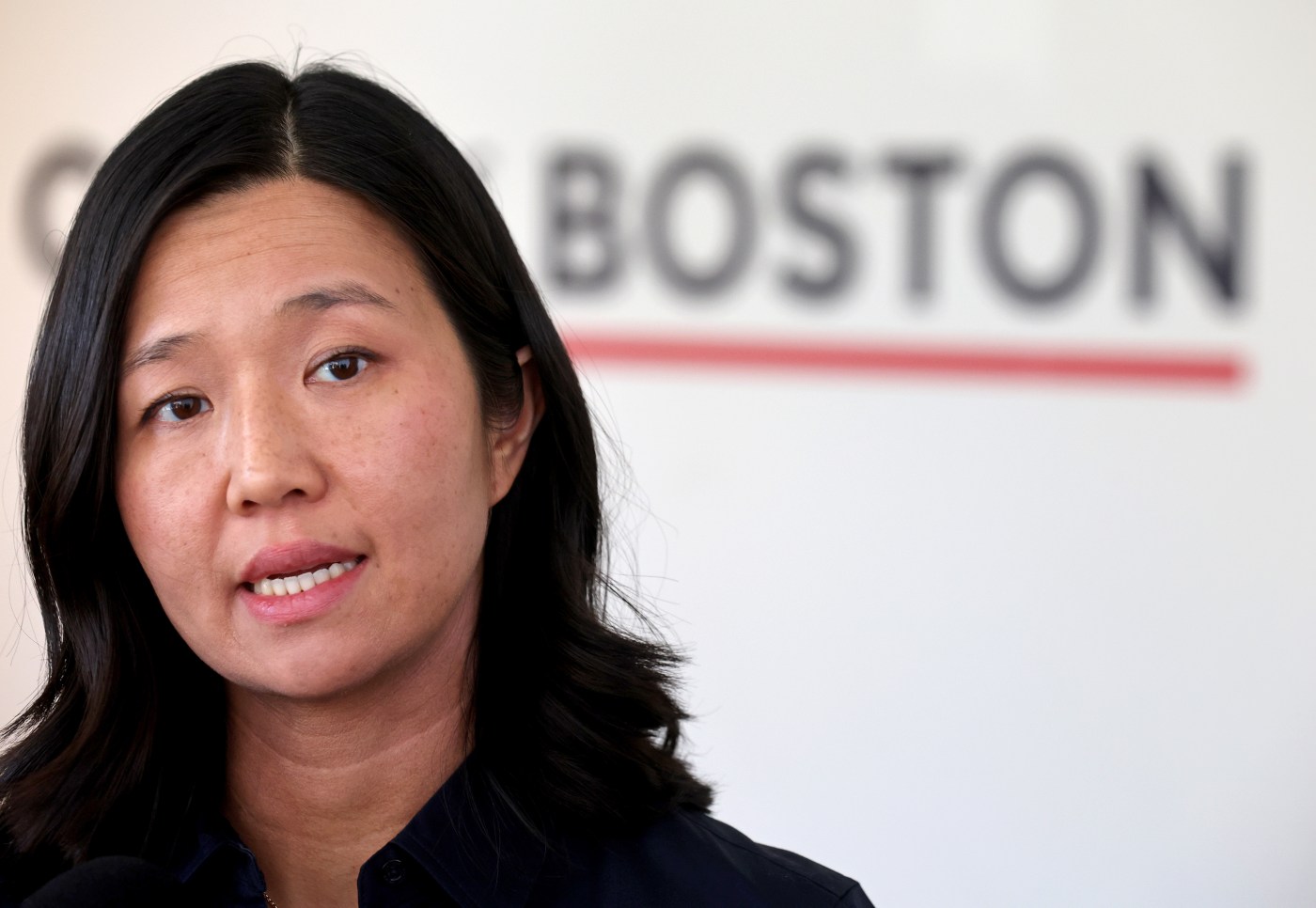
Editorial: Fiscal discipline a welcome change from Mayor Wu
Where has the fiscally conservative Michelle Wu been hiding all this time? The mayor, who infamously tried to push the limit on business taxes, added 300 City Hall positions and has held sway over growing budgets, is now talking “cuts.”
Wu said she’s assembling “as lean” a city budget as possible for next fiscal year, including by eliminating hundreds of vacant municipal jobs.
All this is in response to uncertainty around threatened federal funding reductions. No matter the reason, it’s refreshing, and not a little surprising, to see the Democratic mayor talk trims instead of placing yet more burdens on the backs of Boston taxpayers.
Wu and the Boston City Council exchanged letters Tuesday that include a shared focus on how the city should look to rein in spending for the upcoming fiscal year.
“With over $300 million in federal funds supporting critical city services each year and with likely impacts from federal tariffs and other policy changes to the broader economy, we must exercise caution to ensure stability for our communities — preparing for worst-case scenarios while refraining from preemptive disruption of city services,” Wu wrote.
“This year’s budget must reflect fiscal discipline to protect Boston’s community and economy in the face of federal uncertainty,” the mayor’s letter states.
When was the last time a progressive pol used the term fiscal discipline unironically?
We like the new Wu.
The City Council is on board: Council Vice President Brian Worrell, Ways and Means committee chair, wrote to Wu on behalf of the body.
“Based upon the current federal environment, we advise the city to limit its overall budget growth in order to stay nimble enough financially to backfill critical city services for any federal funds that are lost in FY26,” Worrell wrote.
Here’s the thing — it shouldn’t take the “current federal environment” for City Hall to dial back spending. The fact that rising costs are carried in large part by taxpayers should have been enough to tap the brakes on new hires, new departments and new projects.
“Last fiscal year, the city saved tens of millions of dollars in salaries, and in order to achieve the City Council’s limited requests, we suggest leveraging payroll from the nearly 2,000 vacant jobs in the city,” Worrell wrote.
Amen to that.
We’ve seen what some City salaries look like – and the pensions. A third of the 300 positions created by Wu included six-figure salaries. Letting vacant positions stay unfilled saves millions, without putting the touch on taxpayers.
Wu said that she was planning to eliminate, rather than fill, long-term vacancies “to constrain growth,” and that her budget proposal, which she will announce next Monday, would not include any new city positions.
Her mayoral opponent Josh Kraft took aim on X: “This is from a mayor who couldn’t find a single penny to cut from a $4.5B budget and yet residential taxes continue to go up. Who’s looking out for hard-paying taxpayers?”
Well, right now that looks to be Mayor Wu. It may have taken threats to federal funding to get her there, but we’ll take it.
Let’s hope Michelle “fiscal discipline” Wu sticks around.
Editorial cartoon by Gary Varvel (Creators Syndicate)


